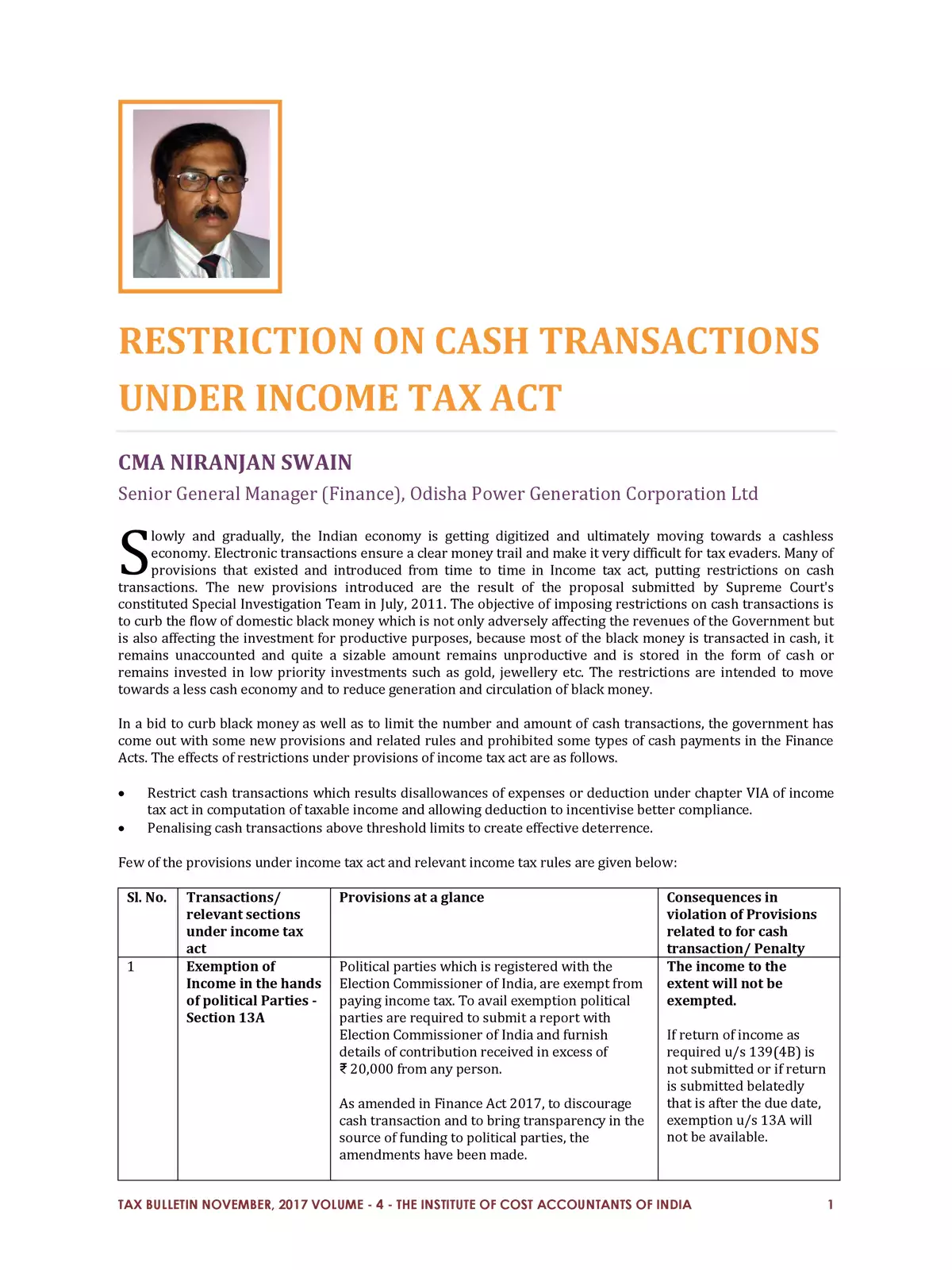Restriction on Cash Transactions under Income Tax Act - Summary
The Restriction on Cash Transactions under Income Tax Act is a very important part of income tax rules in India that tells us about the limits on cash payments and receipts in many types of transactions. Understanding these restrictions is crucial for individuals and businesses to comply with the law and avoid penalties.
Cash Transactions Limits as Per Income Tax Act
The consequences of the restriction on cash transactions under the Income Tax Act can have a big impact. Let’s look at some key points:
- When fewer cash transactions happen, certain charges or deductions under Chapter VIA of the Income Tax Act can be disallowed. This affects the total taxable income and the deductions that promote better financial stability.
- High cash transactions can attract scrutiny and are meant to discourage individuals and businesses from engaging in them.
- If cash deposits exceed one crore in a current account, a justification is required as part of the compliance process.
As of 1st April 2020, if an individual deposits cash of more than one crore in their current account during a financial year, they must declare their income, even if it falls below the taxable limit. This requirement helps ensure that people who carry out large transactions accurately file their income tax returns.
Importance of Compliance
To learn more about the Restriction on Cash Transactions under Income Tax Act, you can download the detailed file in PDF format. This document contains essential insights and serves as an invaluable resource to understand the implications of these cash transaction limits.
Stay informed and compliant with these rules to improve your financial practices and prevent potential issues. Remember to check the PDF for more detailed information! 📈💼
